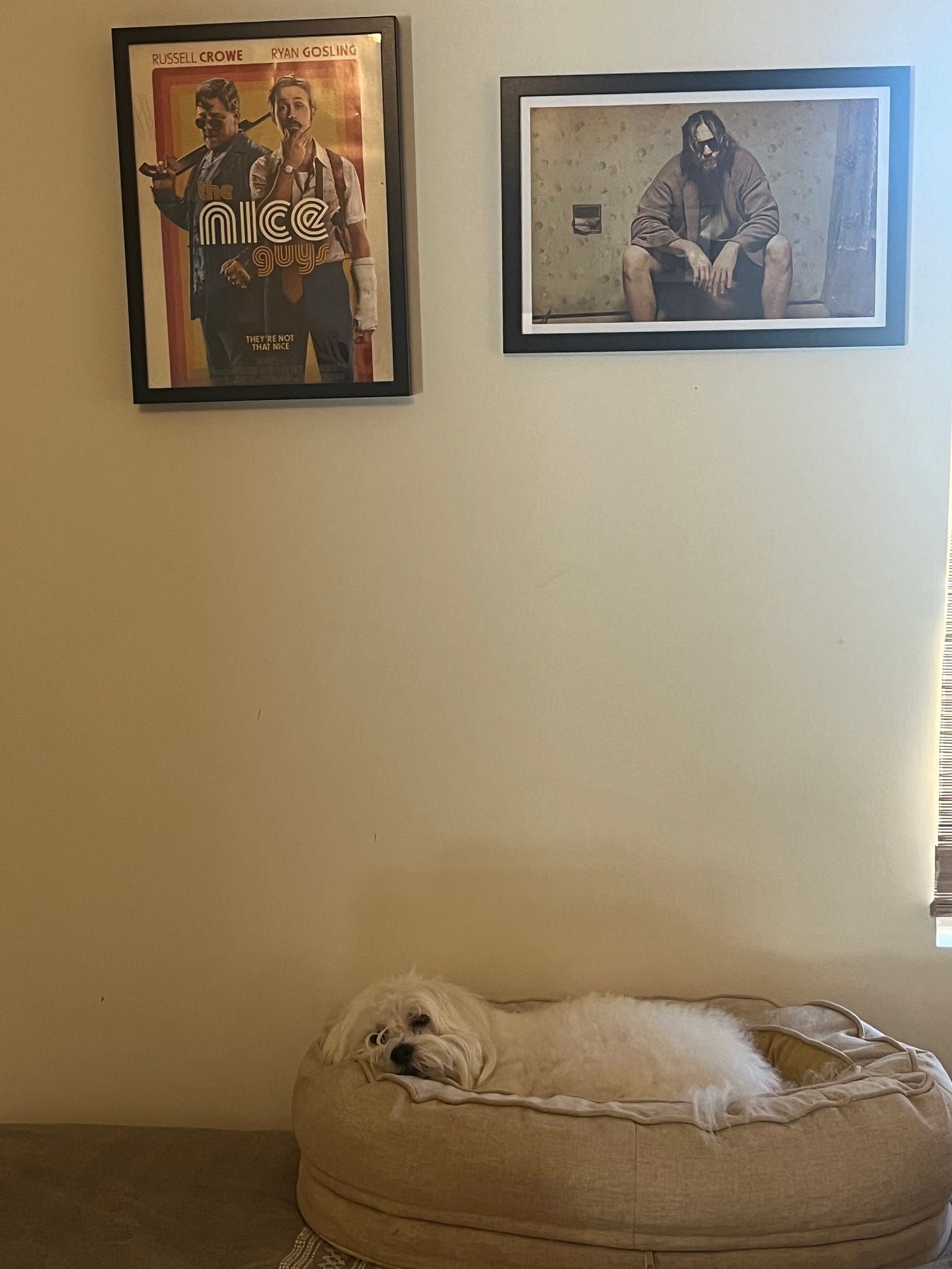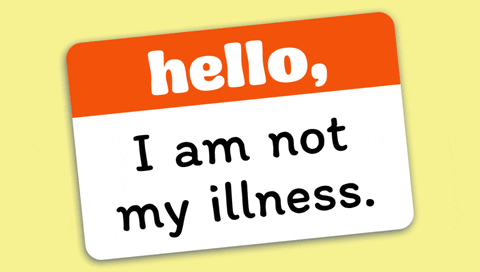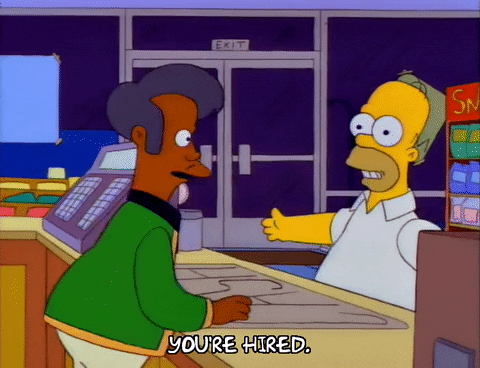Getting mental health help can drive you nuts
A story about depression that (hopefully) isn't depressing
Hey there, situation normies!
Many of you had thoughts about My stubborn gardener, who probably isn't an assassin. My friend Ashlie told my sister, Allison, to tell me that the man who assassinated Leon Trotsky posed as a gardener. I suppose that goes to show you that there are no original ideas. As for the decision to mutilate the Mexican sage, or kill the thread grass, Tab had the best advice: “Keep the sage. It’s a plant with a history. Nobody ever cared enough to write a book or produce a movie about Riders of the Thread Grass.”
Shout out time!
Thank you, Amber S. for sending money via PayPal! Amber, I please reply to this email, so I can upgrade your Situation Normal subscription. All Situation Normal stories are free, but the upgrade means you’ll get the annual stakeholder report, which the best way to hold steak.
Thank you
! Sharron also sent money via PayPal, which makes her a paying pal. Get it? Sharron wrote that the money was a thank you for the laughs and the gardening fund, so I cut Raphael in on the deal, for shits & giggles, and because he might kill if I didn’t.To support Situation Normal, please consider a subscription. Or, if you prefer PayPal, send any amount here. I’ll give you a shout out, send you good vibes, and add you to the list so you receive the annual stakeholder report.
I don’t mean to bum you out, but I’m depressed. The thing to do when you’re depressed is get help. But the thing about depression is that it smothers that fire inside you that makes it possible to get out of bed, face the world, and do stuff like get help for your depression. This is a Catch-22, which is a great novel, but a lousy situation.
The good news is, I’ve been in this situation before. Of course, that’s also the bad news. I’ve tried eating carbs, which don’t really help, but are nevertheless enjoyable. I’ve tried therapy, with mixed results. I’ve tried exercise, with somewhat better results. About two months ago, when it felt like the doom would swallow me whole, I wanted to try all three of those things at once, but I couldn’t find a therapist who offered walking sessions on the way to a donut shop.
Actually, that’s not true. I couldn’t get out of bed.
“I think you should try antidepressants,” Christina said.
I’m not anti-antidepressants, but I am wary of them. I’ve heard a lot of writers complain that antidepressants mess with their creativity. When I was feeling fine, I Googled this topic. I didn’t find any concrete answers, but I did find ample evidence to confirm whatever bias I wished to embrace. Also, since I was feeling relatively fine during those Googling sessions, I concluded that I didn’t need antidepressants.
“You have all these other levers you used to pull, but they’re not working,” Christina said. “Time to try a new lever, honey.”
I made an appointment with my doctor.
My doctor gave me a quiz called Twenty Questions to See if You’re Depressed, Dude. I passed. I mean, I failed! She wrote me a prescription for Lexapro. I told a friend who also takes Lexapro. He said, “Now, we’re Lexabros.”
There are pros and cons to life as a Lexabro. The upside is I feel better. The down side is I feel tired. Basically, I’m ready to face the world… after a nap.
Between naps, I went looking for a therapist. That took some doing because there’s a mental health crisis in this country. Also, the woman at the Kaiser Permanente call center told me, “there’s a shortage of therapists.” That seemed like another Catch-22, but for some reason, maybe the Lexapro, it didn’t feel totally hopeless.
“I can offer you an appointment that starts in thirty minutes, or one three weeks from now,” she said.
I felt a nap coming on, so I took the appointment that was three weeks away. That was probably a mistake. My therapist was lovely, but after our second session, she told me that she was leaving Kaiser.
“Mental health services will call to set you up with a new therapist,” she said. “Or, you can call them. It’s probably better to call them.”
“Got it. Be proactive.”
“Also, you should talk to a psychiatrist about changing your meds,” she said. “If you’re still feeling fatigue at this point, that side effect isn’t going away.”
“Can’t my doctor change my meds?”
“Yes, but primary care physicians are generalists. A psychiatrist has more tools, more training. I’d rather not put you through all the trial and error.”
The trial part sounded fine, but the error part sounded awful. So when I got home, I checked with my doctor. She agreed that a psychiatrist would be better suited to “dial in” my meds. I took a nap, then I phoned the Kaiser call center for a new therapist and an appointment with a psychiatrist.
Once again, the lady at the call center said there was a mental health crisis in America and a shortage of mental health professionals.
“It’ll be faster to set you up with a third-party provider,” she said. “Is that OK?”
Faster sounded good. Plus, there was that old adage to consider—the more the merrier.
“A third-party sounds great,” I said.
The first third-party to call me was a therapist. We set an appointment for the following week, then she sent me some consent forms to sign. There were eight consent forms in total. Six were PDFs, the other two were Word documents. It was a major pain in the ass, but I got it done.
The night before my appointment, my new therapist called.
“You didn’t sign your consent forms. You sent me blanks.”
I double-checked my email. I had sent her signed forms, but I didn’t want to be a dick about it, or get off on the wrong foot with my new therapist, so I emailed her the signed forms again.
“See you tomorrow,” I said.
“See you tomorrow.”
As I was getting ready to leave the house to see my first third-party therapist, my phone rang. It was the second third-party.
“You won’t be seeing a psychiatrist,” she said. “We only have nurse practitioners. Is that OK?”
Nurse practitioners? I didn’t want to be a dick, but that sounded like a step down.
“My primary care doctor said I should see a psychiatrist,” I said.
“Sorry, we can’t do that.”
Since I was now running late to see the first third-party, I took my conversation with the second third-party on the road. After talking about how there’s a mental health crisis in America and a shortage of mental health professionals, we got down to brass tacks.
“Our nurse practitioners work under a psychiatrist’s license,” she said.
“But can’t see that psychiatrist?”
“No. Sorry.”
“So it’s like a game of telephone where I tell the nurse practitioner what’s going on, and they tell the psych. Wouldn’t it be better to cut out the middle-human?”
She didn’t answer that question, but she did lean into the telephone theme.
“You need to call Kaiser and ask them to set you up with a psychiatrist.”
“That’s what I did. That’s how you got my number.”
“I’m sorry.”
As I pulled into the parking lot, I got a text message from the first third-party. My therapist had just sent me a link for a tele-health appointment. That wasn’t right. I had specifically asked Kaiser for in-person therapy. I called the first third-party.
“You signed a consent form for tele-health. Didn’t you read it?”
“No. Nobody reads those forms. And you sent me eight documents that were kinda of a pain in the butt. I had to insert text bubbles all over the place. Like a hundred times. Also, you asked for my pet’s name. What was that all about?”
“You should read the consent forms,” she said.
“OK, good tip. But wouldn’t it be better to talk to patients about this, rather than falling back on legalese that nobody reads? Honestly, I didn’t even think this was an issue since I specifically requested in-person.”
“Don’t feel bad. You’re not the first person to make this mistake.”
“I don’t feel bad because I don’t think the mistake was on my end. If this has happened with other patients, you might want to check with Kaiser because they have you listed for in-person.”
“I don’t do in-person.”
“If you had said that when you scheduled the appointment, I wouldn’t be here.”
“Here? Where are you?”
“You’re parking lot.”
“How did you get my address? I didn’t give it to you.”
“Kaiser. I got it from Kaiser. They gave me your address because I asked for in-person.”
“Well, I think you need to call Kaiser and get a new therapist,” she said.
“Agreed. But you should call them too, tell them you don’t do in-person.”
I drove home. I thought about stopping for donuts, but I didn’t think they would help. When I got home, I took Mortimer for a walk. The sunshine felt good on my face. My four-legged friend made me smile.
After our walk, I took a nap. And after my nap, I phoned Kaiser. The woman I spoke with told me there’s a mental health crisis in America and that there’s a shortage of mental health professionals. Then I told her the story I just told you. She apologized. Then she set me up with my second round of third-parties.
When Christina got home, I told her about my odyssey through a broken mental healthcare system.
“This is a fucking shit-show,” she said.
No argument there.
“But there’s a bright spot.”
“What’s that?” she asked.
“The Lexapro. Sure, it makes me tired, but I wouldn’t be able to navigate the shit show without it.”
Did you know you can hire me?
True story! I’m an award-winning journalist (B2B & B2C, print & digital). I’ve helped hundreds of business leaders tell their stories. If you need storytelling help, hit me up. I’d love to jump on a Zoom with you for a free consultation!
You can learn more about my services by subscribing to Thought Partner, a free newsletter where I share what I know about thought leadership and business storytelling. You can also connect on LinkedIn, or email me at michael.j.estrin@gmail.com. Let’s talk!
Want more Michael Estrin stories? I’ve got books!
Ride/Share: Micro Stories of Soul, Wit and Wisdom from the Backseat is a collection of my Lyft driver stories🚗🗣
Not Safe for Work is an amateur detective novel based on my experiences covering the adult entertainment industry💋🍑🍆🕵️♂️
The ebook versions of my books are priced between 99 cents and $2.99, so if you don’t have the budget for a Situation Normal subscription, buying an ebook is a great way to support my work. Bonus: you’ll laugh your butt off!
Stick around and chat!
You know the drill. I’ve got questions, you’ve got answers.
Have you heard about the mental health crisis in America and the shortage of mental health professionals? Wrong answers only!
Have you ever actually read a consent form? Be honest!
Why would a therapist need to know the name of your pet? Please explain!
People love to shit on Kaiser, but has anyone ever told you that their health insurance is awesome? Asking for my friends who shit on Kaiser, then complain about how their PPO won’t cover the care their doctor ordered.
Catch-22 isn’t a perfect novel, but it’s the best novel there is, right?








Hi man, I’m sorry to hear you’re going through that. I’ve been there myself, and I know how impossible clawing your way out of it is.
The thing that helped me the most was regular exercise, even it’s just the immediate top up of endorphins.
Also, as annoying as it, to both hear and practise, meditation helped me a lot. Just sitting on a chair for 10 minutes a day, and focusing on your breath. Normally I spend about half it thinking about what a twat I am - and then remember to focus. Even that, over time, has an effect. Or maybe try these audio ones, which are a bit more bearable. This one is the only one I’ve found that doesn’t prohibitively irritate me. https://youtu.be/pL02HRFk2vo
I heard on a podcast, where I get all my uninformed, unsolicited advice from, that fish oil has been shown to have an impact on it too. Fish oil with a 1000mg of EPA a day. So I do that as well. It’s not going to solve it, but can’t hurt.
I don’t know what the appropriate sign off to encourage someone to go depression-wrestling is - but give that bastard hell!
I respect your humor and would respond with a joke here, but since we’re talking about your mental health, I’m going to put on my elbow patches as a guy who used to cover the insurance industry for about 25 years.
The short version of this is that you are best off paying for mental health care out of pocket and skipping the gauntlet you just ran. Because this isn’t just Kaiser. Pretty much all health insurance plans will do this to you.
Here’s the long version:
After the Sandy Hook shooting, I published a series of articles on how the U.S. health insurers actively discourage the use of their services for mental health care. To them - Kaiser is not unique here - putting you through hell to get substandard care is a feature, not a bug. It is meant to discourage you from getting the care they owe you contractually and for which you have paid.
The reasons for this go deeper than the insurance industry’s general disdain for its policyholders. Historically, health insurance underwriters (who are NOT medical professionals; they’re just bean-counters) conflated mental health care with drug and alcohol rehabilitation services. As a result, they excluded this care from as many policies as possible because rehab has a terrible loss history (owing to the recidivism of addicts in general). This is hurtful ignorance on the part of the insurance industry, but that’s the insurance industry for you.
However, the Mental Health Parity and Addiction Equity Act of 2008 prevented health plans from providing less favorable provisions for mental health care than for other medical issues, like, say, heart disease. Obamacare further amended this in 2010 to extend that protection to individual health plans as well. That included requiring insurers to provide affordable plans even on those policies meant to be so cheap that anyone could afford them.
Insurers responded by crafting policies where either a) the deductible for mental health care was so high that you effectively pay out of pocket for the whole thing anyway, or b) the policies that were gold-standard enough to provide really good coverage for mental health care were themselves so expensive that if you could afford them, then you could afford to pay for mental health care out of pocket. They did this mainly because they’re jerks. Nice people generally don’t excel in the insurance business.
This reality varies by state. 99% of insurance legislation in this country is on the state level - which bugs the hell out of European insurers, BTW. And insurance (health or otherwise) is regulated like a semi-utility. You need the state’s permission to bring a product to market, change its price, or even leave the market. Insurance is NOT a free market product.
Some states are much worse than others when it comes to providing mental health care through insurance (Texas, I’m looking at you). When I did my deep dive on this, I recall that CA was all over the place on this because it had a pretty diverse insurance marketplace and a certain degree of respect for consumers.
But the ultimate result is that health insurers simply do not prioritize mental health care. They do not want you using their services for it. They will not deliver good service to you. They will make you run an exhaustive gauntlet so they you eventually just give up. Which is something somebody with less than 100% mental wellness is highly likely to do. This is not a coincidental effect. This is intentional on the part of insurers.
If you can pay out of pocket, do. There are plenty of therapists out of system. And if you’re paying them directly, you’ll be amazed at how available they become, because it’s as much of a pain for them to get paid by insurance companies as it is for you to be covered by them.
We are not facing a crisis of practitioner availability so much as we are facing a crisis of people seeking services from a system that very much wants them to fuck off. Pay out of pocket, if you can. At the very least, it will remove the stress of navigating a hostile system.
This is a process. And you’re not alone in it. And your health matters.